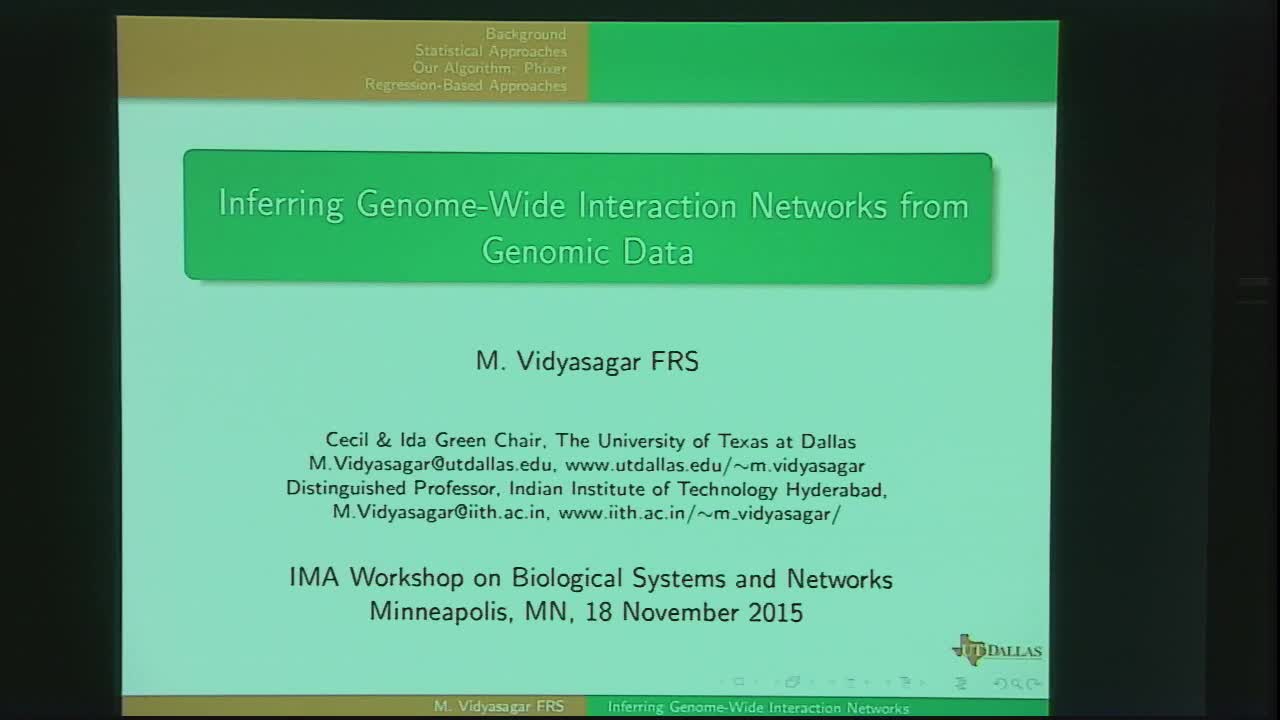Inferring Genome-Wide Interaction Networks from Genomic Data
Presenter
November 18, 2015
MSC:
- 92C42
Abstract
Despite its long history, the problem of inferring genome-wide interaction networks from expression data is still relatively unsolved. Experimental methods can at best validate a few biochemical pathways at a time, and are both slow and expensive. Recent advances in whole-genome expression studies hold the promise of enabling the reverse-engineering genome-wide interactions networks, by treating the expression level of each gene (or other molecular attribute) as a random variable. There are at present three classes of methods, each with its own shortcomings. Methods based on mutual information, often referred to as influence networks, can only generate undirected graphs because the mutual information between two random variables is a symmetric quantity. Methods based on Bayesian networks can only generate directed graphs, but they must be acyclic. Neither restriction is biologically realistic. The third class is based on some sort of sparse regression, such as LASSO, and such methods are extremely CPU-intensive. In this talk we propose a new method that generates graphs that are (i) genome-wide in the sense that every gene is represented as a node in the network, (ii) directed and weighted, and (iii) can contain cycles. The method is also extremely CPU-efficient. The novel idea behind the algorithm is to use a directionally dependent measure of interaction between two random variables, known as the phi-mixing coefficient.
